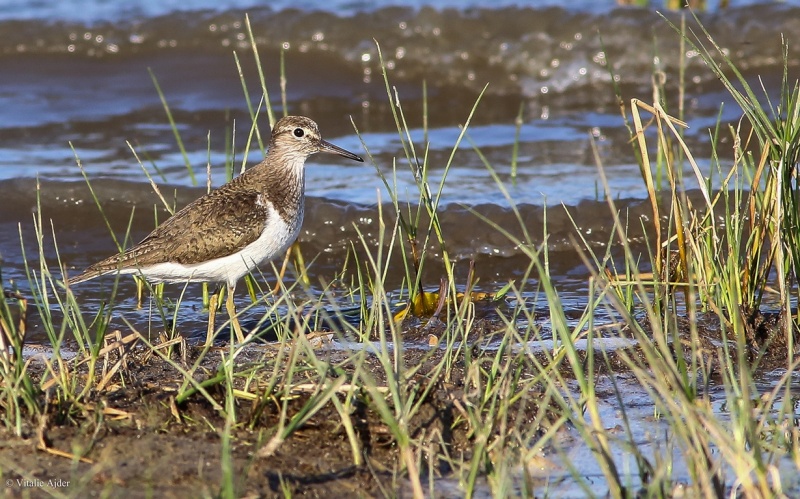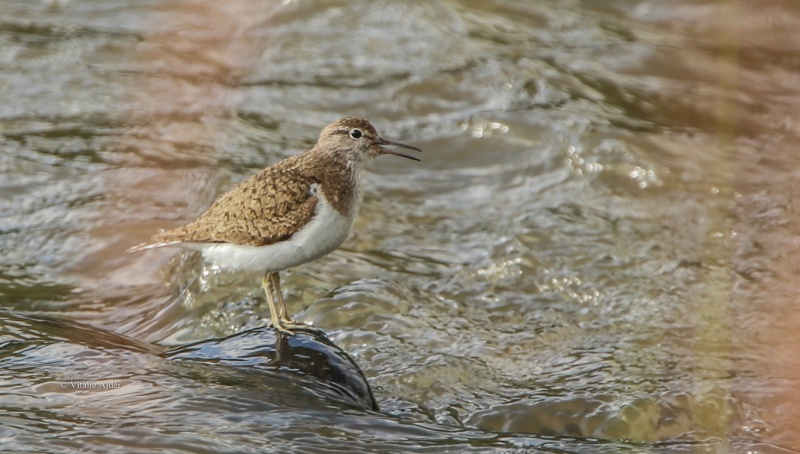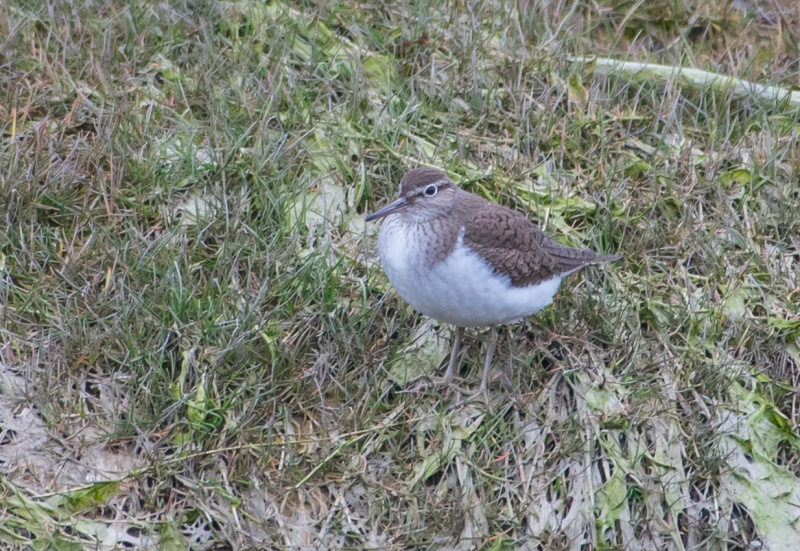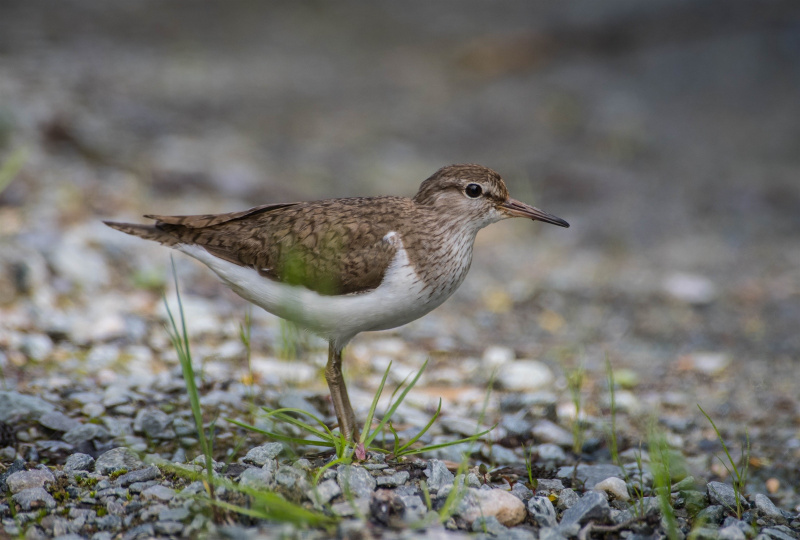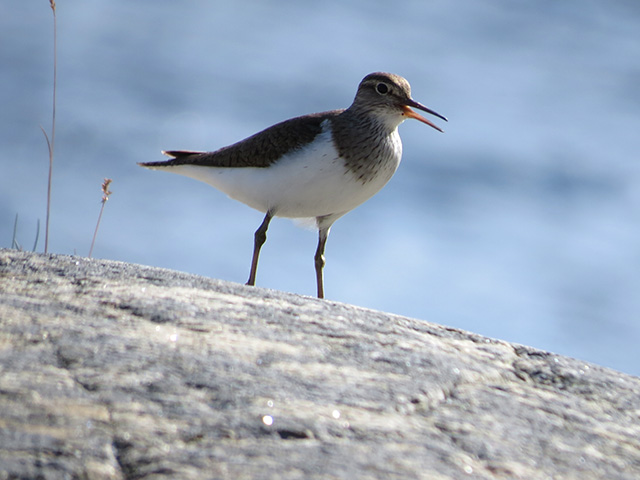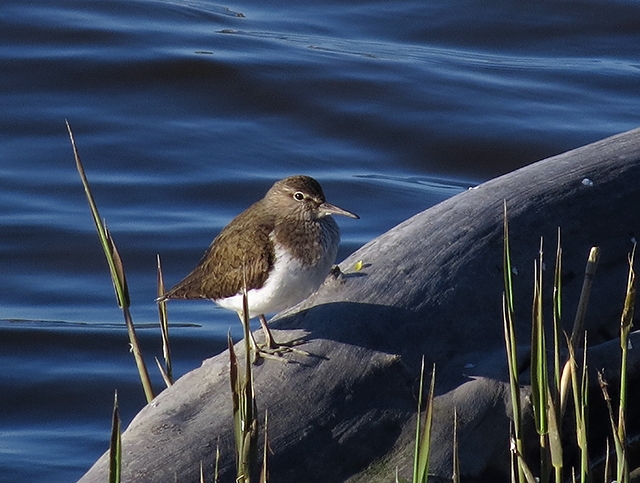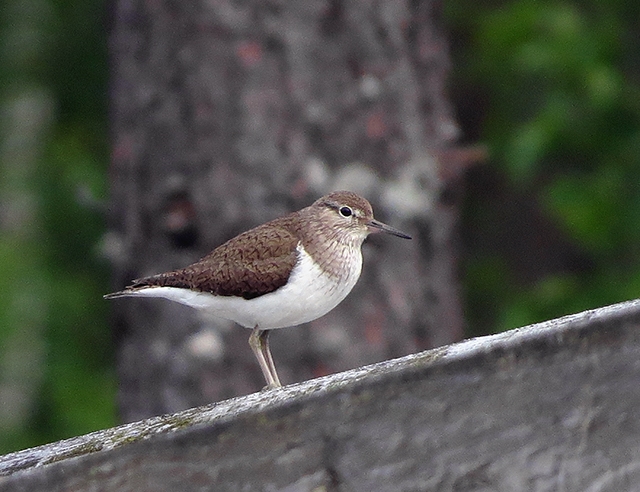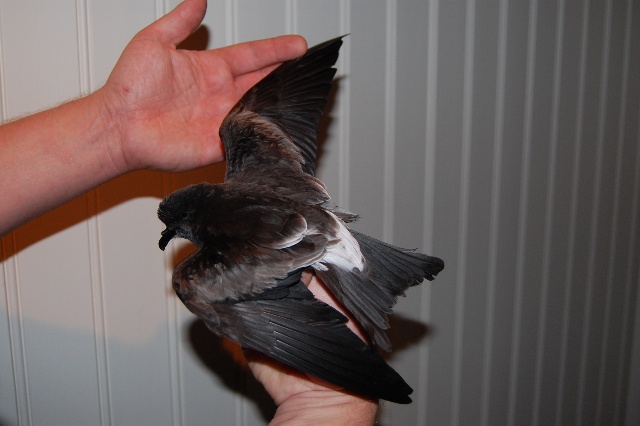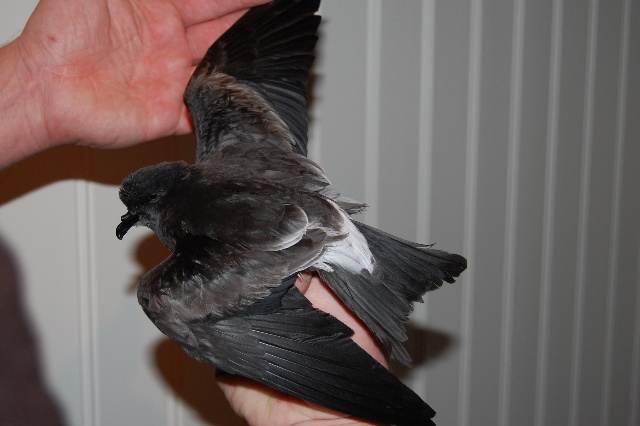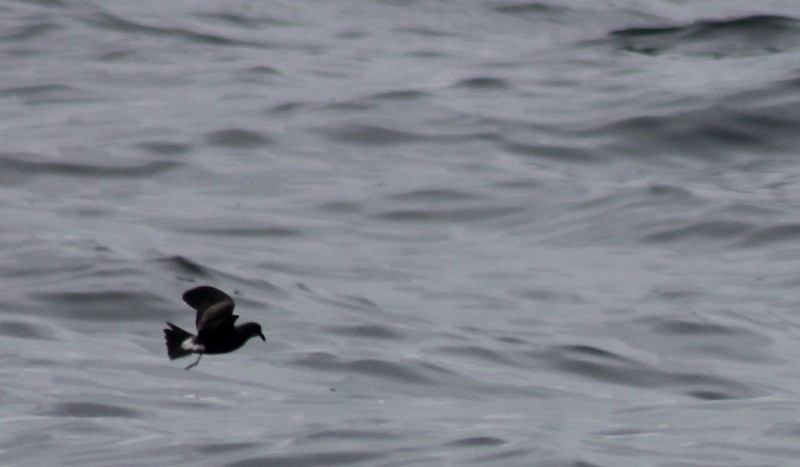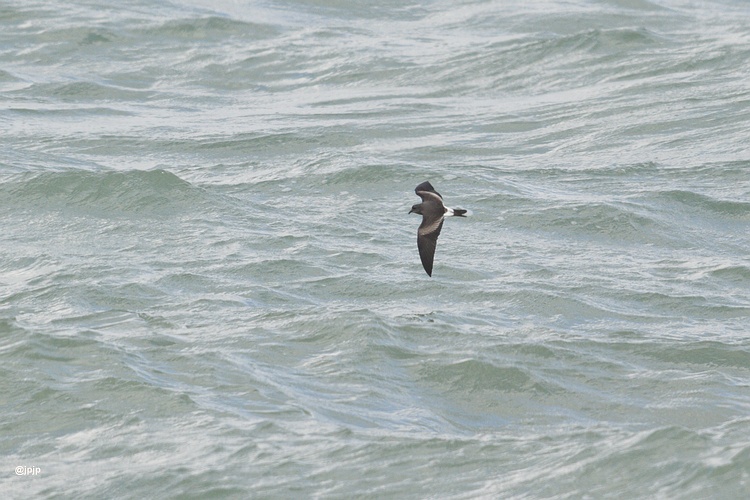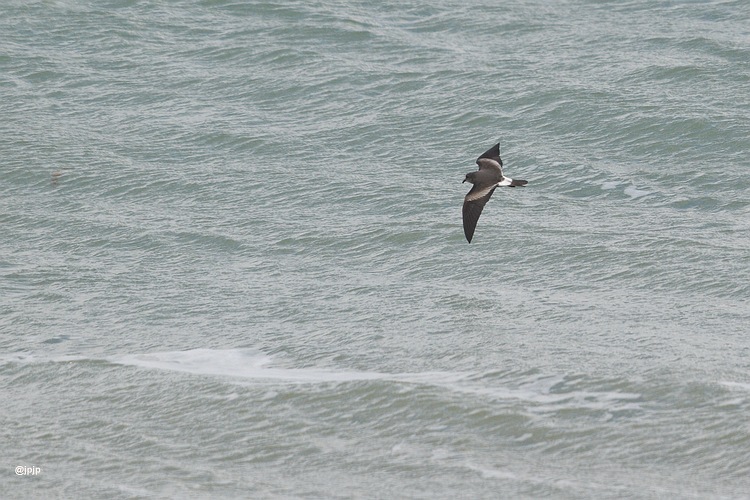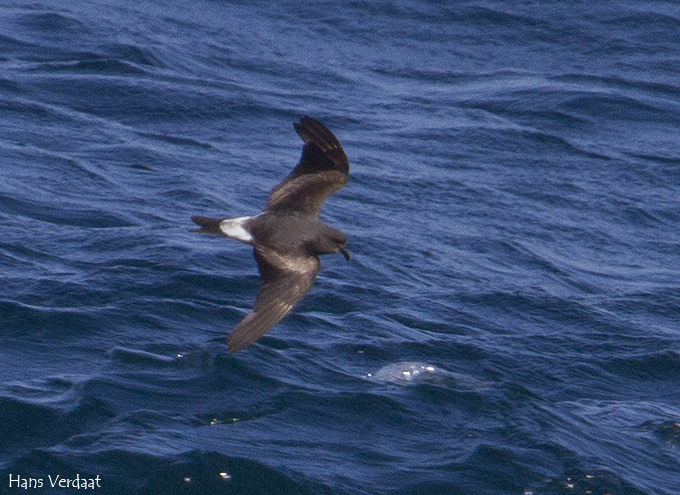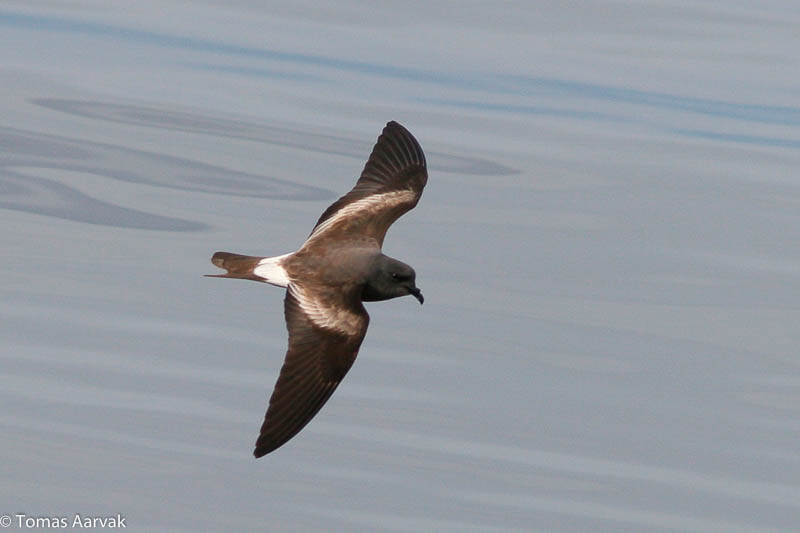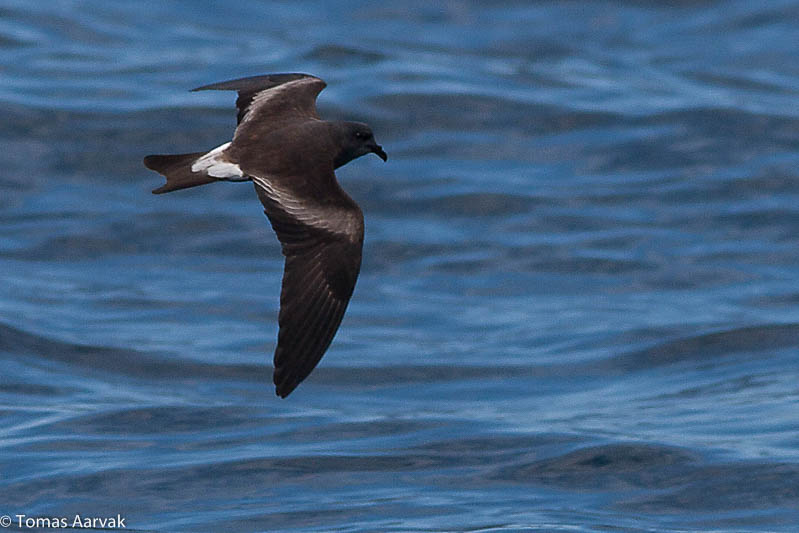Common Sandpiper (Actitis hypoleucos)
Leach's Storm Petrel (Hydrobates leucorhous)
A small, active and quick wader, sharing traits of both Tringa and Calidris type. Most easily identified in the field by it's behaviour and sound. Most distinct plumage feature is the white wedge in front of the wings at the sides of the breast. Body is elongated and legs fairly short and greenish. Constantly bobs body and head. In flight the dark rump and white wing-bars are obvious. Often flickers its wings when flying low above water, especially just before landing.
Sound:Very vocal with characteristic repertoire of very high-pitched calls. Often heard is a disyllabic call, drawn out and slightly rising in pitch in the second part. This is often repeated in a series of rising tones in a cyclic manner, with approx 5 tones in each cycle.
Flight call, song:
Distribution:
Wikipedia: map (se also Xeno-canto below)
Ecology:Birdlife ecology
Links:
Observation.org Latest observations
Image search Flickr NB! May give other species
CCForked and fairly long tail. Clearly bigger than Storm Petrel, with more slender appearance and longer wings. Generally not as black, and shows brownish tone to plumage. The white rump patch is oval, has a weak grey center stripe, and does not reach as far down on the sides as in Storm Petrel. Light grey upper greater coverts form a wing-band. Underside of wings all dark. Flight pattern variable, with frequent changes in direction and speed. Sometimes glides like a shearwater but at other times shows surprisingly deep wing-beats. Does not patter surface, but will rest on water. Visits breeding ground only at night, and is usually only seen after storms.
Sound:Only calls at breeding ground. A series of accentuated cooing, interrupted by a squeaky "inbreath" and a loud, absurd, fanfare-like "kaaa-ka-ka-kaaa-ka".
Calls:
Distribution:
Wikipedia: map (se also Xeno-canto below)
Ecology:Birdlife ecology
Links:
Observation.org Latest observations
Image search Flickr NB! May give other species
CC
 English
English Albanian
Albanian
 Armenian
Armenian
 Bulgarian
Bulgarian
 Catalan
Catalan
 Croatian
Croatian
 Czech
Czech
 Danish
Danish
 Dutch
Dutch
 Finnish
Finnish
 French
French
 Georgian
Georgian
 German
German
 Greek
Greek
 Hungarian
Hungarian
 Italian
Italian
 Latvian
Latvian
 Lithuanian
Lithuanian
 Macedonian
Macedonian
 Norwegian
Norwegian
 Polish
Polish
 Portuguese
Portuguese
 Romanian
Romanian
 Russian
Russian
 Sami : Lule sami
Sami : Lule sami
 Sami : North sami
Sami : North sami
 Sami : South sami
Sami : South sami
 Scientific names
Scientific names
 Serbian
Serbian
 Spanish
Spanish
 Swedish
Swedish
 Ukrainian
Ukrainian


